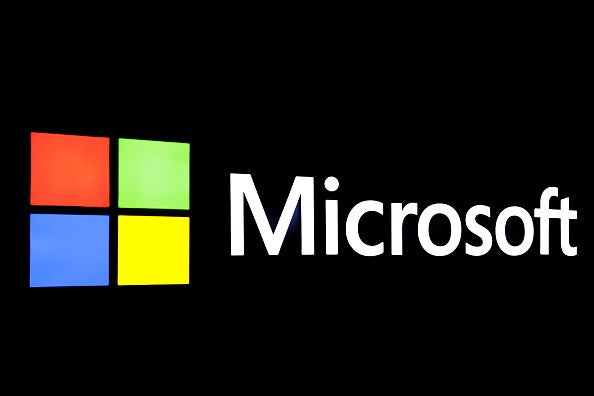
With numerous sectors still reeling from the impacts of Covid-19, small businesses are arguably among the organisations hit the hardest.
According to a survey conducted by Morning Consult and Verizon Business, 67% of US small businesses surveyed said that their sales have declined as a result of the pandemic. Furthermore, research by Simply Business found that on average small businesses in the UK have lost more than £11,000.
In this context, lenders and investors are understandably cautious about backing small businesses. Although some help is on hand, such as the Coronavirus Business Interruption Loan Scheme and the Small Business Grant Fund introduced by the UK government, small businesses will inevitably face challenging times in the coming months.
Capital on Tap is a credit lending service specialising in independent small businesses. It utilises technology to make it easier for small businesses to access funds instantly, freeing customers from the “long forms, slow response times, opaque fees and rigid underwriting criteria” that often come with business loans.
The company recently reached a milestone of lending a total of £2bn to over 120,000 businesses since it launched.
Alex Miles, head of growth at Capital on Tap spoke to Verdict about how the company is utilising technology to assist small businesses at this time.
How well do you really know your competitors?
Access the most comprehensive Company Profiles on the market, powered by GlobalData. Save hours of research. Gain competitive edge.

Thank you!
Your download email will arrive shortly
Not ready to buy yet? Download a free sample
We are confident about the unique quality of our Company Profiles. However, we want you to make the most beneficial decision for your business, so we offer a free sample that you can download by submitting the below form
By GlobalDataCapital on Tap: Serving small businesses
Launched in the UK in 2012, Capital on Tap offers business credit cards of up to £50,000 as well as overdraft facilities for small businesses. The company uses a payment platform from Marqeta, which enables customers to fill out an online application remotely and receive loans almost instantly.
The company recently launched in Spain, during lockdown, and has plans to launch in the US before the end of the year.
Miles explains that Capital on Tap’s client base is largely made up of businesses with “a handful of employees”.
“We target really small businesses so think of someone who turns over a couple hundred thousand, maybe your country pub which typically has a handful of employees,” he says.
“A country pub could be quite a big one for us because it might have eight or nine employees whereas most of the businesses have two or three.”
Businesses of this size can find it difficult to access much-needed capital at the early stages, or may be met with a laborious onboarding process when applying for a loan or business credit card.
“If you’re setting up a small business and you don’t have a trading history, or you’re a pretty small business even if you do have a trading history, you can often find it quite difficult to get a business credit card and you have to them borrow in other ways that can be less cost-effective.”
This has been exacerbated by the Covid-19 pandemic, with some lenders reluctant to take on new customers.
“What we did differently to a lot of lenders is we actually stayed open for business so we were still lending money out to our existing customers so they could continue spending on their cards and borrowing more money,” he explains.
“But we were also open to new applicants whereas a lot of other lenders shut their doors and looked after their existing customer base but weren’t open to new businesses.”
Having launched in Spain during a lockdown, Capital on Tap has first-hand experience of the challenges that come with doing business at this time.
“It was obviously a strange period to go through because all of the data points you’re used to seeing are slightly distorted. The quality of customers applying is hard to assess because you’re basing it off historic data that is no longer representative of the future so for example a restaurant that’s been performing really well over the last five years we might think based off our models it’s a really strong business,” he says.
“However you know that it’s going to struggle a lot over the next few months as it’s simply not open for business. And then obviously businesses don’t struggle as much as they would have if there wasn’t that government support in place. So it was very strange lending during those times.”
The company has also issued Coronavirus business interruption loans on behalf of the UK government as an accredited lender.
Embracing technology
What sets Capital on Tap apart from other is the speed at which small businesses can access funds, which can be crucial for small businesses looking to grow.
“You apply to Capital on Tap, it takes you 30 seconds to fill out a very quick application form essentially just asking for the business address and the owner’s name and date of birth,” he says.
“Off the back of that we’re able to ping out a load of API calls and make an instant credit decision. So we’ll then be able to say you’ve been approved for a credit facility of say £40,000 and then there’s two ways you can access that. Either you can spend on your card to start drawing down the balance or you can transfer it straight to your bank account.
“The features that we have are all the benefits of using a card which are up to 56 days interest-free so if you paid off your balance in full every month you wouldn’t have to pay any interest. You can have free supplementary cards, you can use Apple Pay, there’s no FX, there’s no account charges.”
This is largely due to the underlying technology Capital on Tap’s platform is built on. Miles explained that customers have access to a customer portal from which they can check their balance and also integrate card transactions with their accounting software.
Miles believes this is what gives Capital on Tap an advantage over some of its competitors, which may have “clunkier infrastructure” and a slower onboarding process.
“The main advantage [over a traditional bank loan] would be the speed and access to money. The banks are also typically retrenching from this area so the smaller businesses are less profitable to lend to. This is because they have clunkier infrastructure and the onboarding process is slow and heavy which is costly to them,” he says.
“So it would typically take you say six weeks to get a loan from your bank. The advantage here is it takes 20 seconds to fill in the form and you then have an instant credit approval.
“I think it’s really important [for businesses to be embracing technology] as otherwise you’re not going to be able to service the customer in a cost-effective way. There’s two parts. One is that you need to be able to underwrite them in a cost-effective way and technology helps that, and on the other side it’s then looking at the Marqeta-style processing technology and that just allows us to give customers a much better service and give them real-time transactions so they can continually use their card without any disruption.”
According to recent research by Encompass Corporation, almost three quarters of businesses surveyed favour remote onboarding when banking, saying that they would prefer regulatory checks to be carried out digitally.
“I think we’re going to see lots of businesses in trouble”
Miles believes technology has been critical to delivering instant credit decisions to customers.
“Without the technology we’ve got on our side we wouldn’t be able to give a customer a credit decision instantly. It’s usually a manual process which is where the big banks add costs,” he says.
“Then in terms of actually using the products, if you think of the technology Marqeta has in terms of the real-time transactions and reporting, that allows us to let the customer spend freely and we don’t have to batch up all of the transactions and do a manual reconciliation. So essentially it allows us to let them spend right up to their limit, give them more detail on each transaction that’s coming through. All the bits of information that they’d want to see.”
Looking to the future, Miles said that the company has plans to expand to larger businesses.
“I think the plan to expand would be to look at the bigger businesses and market to them the benefits of the rewards programme we have in place. I think the other side of it would be looking to expand into the US and a new territory.”
For small businesses Miles believes that challenges will likely lie ahead.
“I think it’ll be very difficult for the ones trying to grow because they’ve got a lot of catching up to do on the missed revenue from lockdown,” he says.
“I think we’re going to see lots of businesses in trouble. Which then makes it harder for lenders to continue their business. So I think you’ll see a lot of lenders tighten up their approval process and not supply access to funding for as many small businesses as they used to a year or so ago.”
Read more: Passion economy is now worth over $38bn globally.







